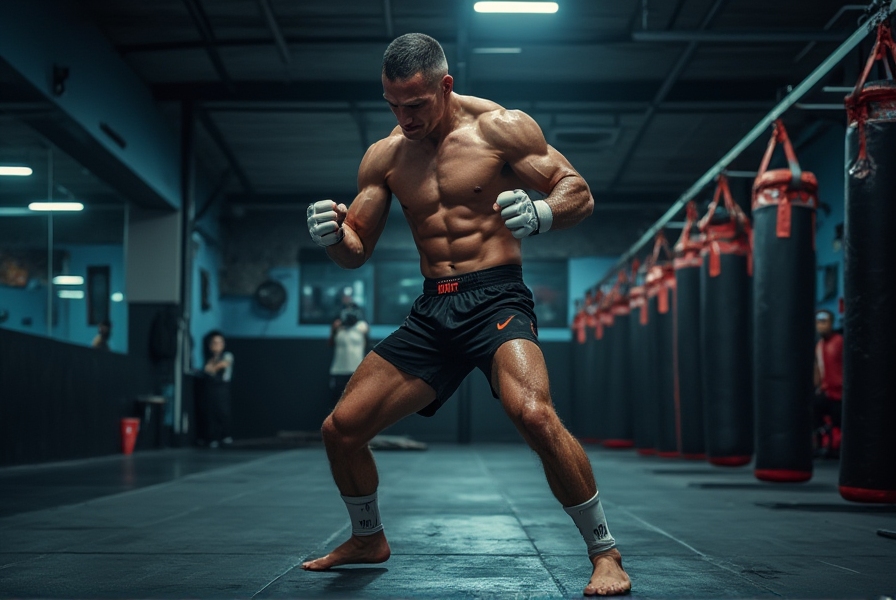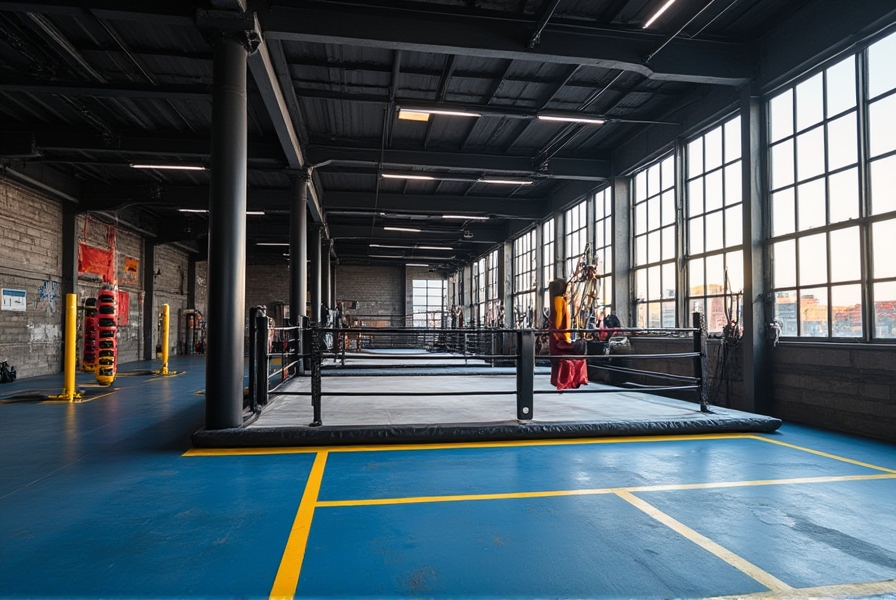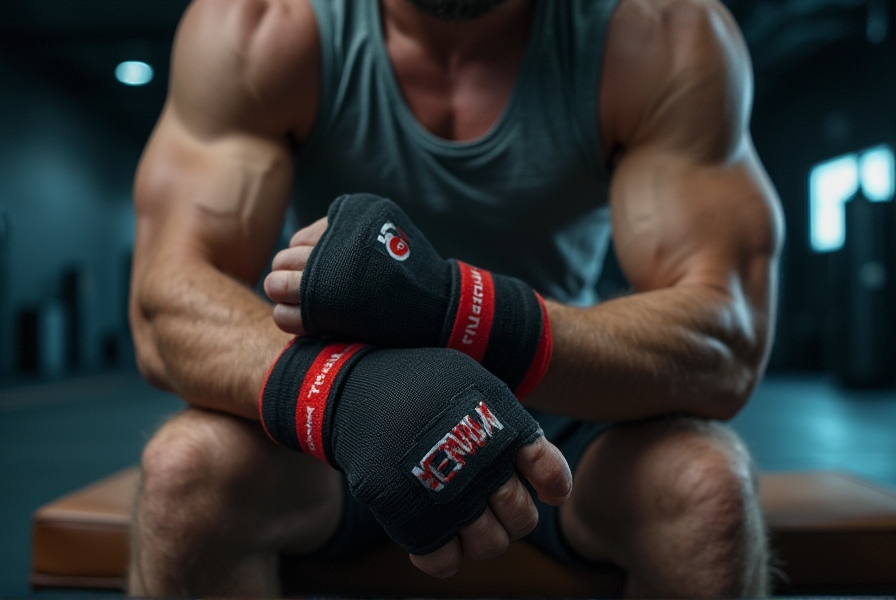Every fighter knows that gut-wrenching feeling. You’re pushing hard in training, but something’s off. Your strength isn’t converting to fight performance. Your recovery’s dragging. And that dream of going pro? It feels like it’s getting further away instead of closer.
In the intense world of combat sports, the difference between victory and defeat often comes down to your training program. For fighters in Brisbane looking to make the leap from amateur to professional, finding the right fitness classes isn’t just about staying in shape – it’s about crafting a champion.
Here’s the thing about combat sports training – it’s not like regular fitness. You can’t just show up to any gym and expect to get the specific conditioning you need. Random workouts won’t cut it when you’re trying to build explosive power while managing weight cuts and preventing injuries.
That’s why Brisbane fighters are switching to specialized training programs that actually understand what you’re up against. Programs that give you:
- Scientific periodization that peaks you for fight night
- Strength training that builds power without slowing you down
- Recovery systems that keep you training hard without breaking down
- Weight management that won’t wreck your performance
In this guide, we’ll break down exactly how Brisbane’s elite fitness classes are helping fighters like you transform their performance through proven systems for periodization, strength and conditioning, recovery, and weight management. No fluff, just real strategies that get real results in the cage or ring.

Why Brisbane Fighters Need Specialized Training
Real talk – the jump from amateur to pro isn’t just about fighting better. It’s about training smarter. Most Brisbane fighters are making the same mistakes I see every day – random training sessions, no real system, and wondering why they keep hitting plateaus or getting injured.
Here’s what usually happens: You’re juggling striking training, grappling, conditioning, and strength work. You write your own programs because hey, you know your body best, right? But then fight camp hits, and everything falls apart. You’re either overtrained or undertrained, your weight’s all over the place, and you’re crossing your fingers hoping you’ll perform on fight night.
Let’s break down where most fighters go wrong:
The Random Training Trap
- Monday: Heavy lifting because you feel strong
- Tuesday: Extra sparring rounds because why not
- Wednesday: Can barely move, so you do “recovery” (aka sitting on the couch)
- Thursday: Try to make up for yesterday with double sessions
- Friday: Fighting through minor injuries that won’t go away
Sound familiar? This approach might work when you’re starting out, but it’ll destroy your pro career before it begins.
The science is clear on this – your body needs structured stress and recovery to perform at its peak. When you’re hitting high-intensity training in one discipline, you need to dial back others. It’s not about training harder – it’s about training right.
Think about it like building a house. You wouldn’t just throw materials together randomly and hope it stands up. You need a blueprint. You need to know which walls are load-bearing. You need to build in the right order.
That’s what specialized training does. It gives you the blueprint for:
- Coordinating all your different training types
- Building strength without sacrificing speed
- Managing your energy so you can train consistently
- Preventing those nagging injuries that keep coming back
And here’s what most fighters don’t get – pros don’t just train differently, they train purposefully. Every session has a reason. Every week builds on the last. It’s a system, not a bunch of random workouts strung together.
Complete Fighter Development
You’ve probably heard fighters talk about “taking it to the next level.” But what does that actually mean in real training terms? Let’s get specific about what professional-grade programs look like.
First up – periodization. This isn’t just a fancy word for planning. It’s about matching your training intensity to where you are in your fight cycle:
Base Building Phase
- Heavy strength work while technical skills stay light
- Building your gas tank without burning out
- Setting your walking-around weight where it needs to be
Fight Camp Phase
- Power training that carries over to fighting
- Sport-specific conditioning that matches fight intensity
- Smart tapering so you peak on fight night, not three weeks early
But here’s where most programs mess up – they forget that recovery is just as important as the work. Check this out:
| Training Phase | Main Focus | Recovery Protocol |
| Base Building | Strength | 48hr between heavy sessions |
| Power Phase | Explosiveness | 24hr between intense work |
| Fight Camp | Fight-specific | Planned deload weeks |
The real game-changer? Having systems in place for:
- Sleep quality tracking during intense blocks
- Inflammation management between sessions
- Proper deload weeks (not just random light days)
- Nutrition timing around different training types
Think about your last hard training block. Did you know exactly how much to push and when to pull back? Or were you just going by feel? Because at the pro level, “feeling it out” doesn’t cut it.
We’ve seen fighters come in who could barely string together three hard training days. Now they’re handling eight-week fight camps while staying healthy and strong. The difference? A system that actually makes sense for combat sports.
This isn’t about training like a bodybuilder or a powerlifter. It’s about training like a fighter who wants to win consistently and have a long career. It’s about building a body that can handle the demands of pro fighting without breaking down.
Training Facilities
Your training environment makes or breaks your development. Most commercial gyms just don’t get it – they’re not set up for what fighters need. Let’s talk about what really matters in a training space.
The basics have to be right:
- Open mat space that lets you move explosively
- Quality bags and pads that won’t wreck your joints
- Proper lifting equipment for combat-specific strength
- Recovery tools you can use between sessions
But the game-changer is having everything in one spot. No more driving across Brisbane to piece together your training. No more trying to fit strength work in at 24/7 gyms that don’t understand fight prep.
We’ve integrated technology that actually matters:
- Performance tracking that shows your real progress
- Heart rate monitoring during conditioning
- Weight tracking to keep your cut on track
- Video analysis of your movement patterns
Here’s what fighters love about our setup at Pulse Playground:
| Area | Purpose | Fighter Benefit |
| Combat Zone | Skill Work | Sport-specific training |
| Power Area | Strength/Speed | Explosive development |
| Recovery Space | Restoration | Faster bouncebacks |
| Assessment Room | Progress Tracking | Data-driven gains |
But it’s not just about the equipment. Your training space should feel like your second home. When you walk in, you should know every session has a purpose. You’re not just another gym member – you’re a fighter working toward clear goals.

Professional Fight Preparation
Let’s cut right to what matters most – getting you ready for fight night. Weight management and fight camp aren’t just about surviving until weigh-ins. They’re about showing up at your absolute best.
Most fighters get this wrong from day one. They blow up between fights, crash diet for camps, and wonder why their performance tanks. Here’s a better way:
Smart Weight Management
- Track your morning weight daily – no guessing
- Keep walking weight max 5kg above fight weight
- Use water loading properly – not just fight week
- Time your carbs around hard training sessions
Your fight camp shouldn’t feel like a 8-week near-death experience. Here’s what working fight prep looks like:
| Weeks Out | Focus | Weight Target |
| 8-6 | Volume/Conditioning | -2kg |
| 5-3 | Power/Technical | -2kg |
| 2-1 | Speed/Sharpness | -1kg |
| Fight Week | Performance | Final Cut |
Real fight prep means:
- Sparring that peaks at the right time
- Conditioning that matches your fight style
- Strength work that maintains your power
- Recovery methods that keep you fresh
We’ve seen too many fighters waste good training camps with bad weight cuts. Or burn themselves out two weeks before the fight. Or get injured pushing too hard too close to fight night.
The pros get it right because they plan everything:
- Every sparring round has a purpose
- Every strength session supports your fighting
- Every meal fits your weight management
- Every recovery day is used properly
Beyond Training
Being a pro fighter isn’t just about what happens in the gym. The best fighters in Brisbane are building their careers both in and out of training. Let’s get real about the full picture.
Most fighters skip this part. They focus only on training and wonder why opportunities pass them by. But building your brand matters:
Social Media That Works
- Daily training content that builds followers
- Behind-the-scenes fight prep that fans love
- Sponsor-friendly posts that don’t feel fake
- Stories that show your journey
Building your fight career means thinking about:
- Getting the right sponsors
- Working with multiple coaches
- Managing your fight schedule
- Creating backup income streams
Look at the fighters who make it big in Australia. They’re not just good at fighting – they’re good at being professional fighters. That means:
| Career Area | Action Steps | Purpose |
| Media | Regular content | Build following |
| Sponsors | Value delivery | Secure income |
| Network | Industry contacts | Get opportunities |
| Skills | Coaching/PT work | Backup income |
But here’s what most fighters miss – you need to start building this stuff before you go pro. Your amateur career is perfect for:
- Testing what content works
- Building your local following
- Making industry connections
- Learning the business side
You’re not just training to win fights. You’re building a sustainable career in combat sports. The guys who last in this sport? They figure this out early.

Success Stories
Let’s talk about real results from real fighters in Brisbane. No fluff – just what actually happens when you get the right training system in place.
Take Josh Murphy’s journey. This guy’s been in martial arts his whole life. Like many of us, he came up in that old school “train through the pain” mentality. You know the type – if you’re not hurting, you’re not working hard enough.
Here’s what changed when he started working with our specialized program:
- Made injuries manageable while still pushing limits
- Cut 14kg over 12 weeks eating foods he actually enjoyed
- Put back on 8kg after weigh-ins for fight night
- Kept performing at his peak during the whole process
In Josh’s own words: “I’ve been training martial arts all my life, I’ll always be a student of the sport, but unfortunately, I was raised in a time where you trained through injuries, no pain, no gain! In the short time I’ve worked with Jonny at pulse performance, my injuries are becoming tolerable while pushing my body to its limits through my personalised program. I also had my easiest weight cut while still eating foods I enjoy and need.”
This isn’t about revolutionary new techniques. It’s about smart training that actually works for fighters. Josh’s results show what happens when you combine experience with proper programming:
- Sustainable training intensity
- Weight management that makes sense
- Performance that keeps improving
- Long-term career development
As Josh puts it – this approach is “changing the game” in Brisbane’s fight scene.
Time to Make Your Move
Book your fighter assessment today. Let’s look at:
- Where your training needs fixing
- How to structure your fight camps
- What’s holding back your performance
- Your path to going pro
Call us at 0491 970 713 or drop by 27a Staple St, Seventeen Mile Rocks.
Stop guessing with your training. Start training like a pro.



